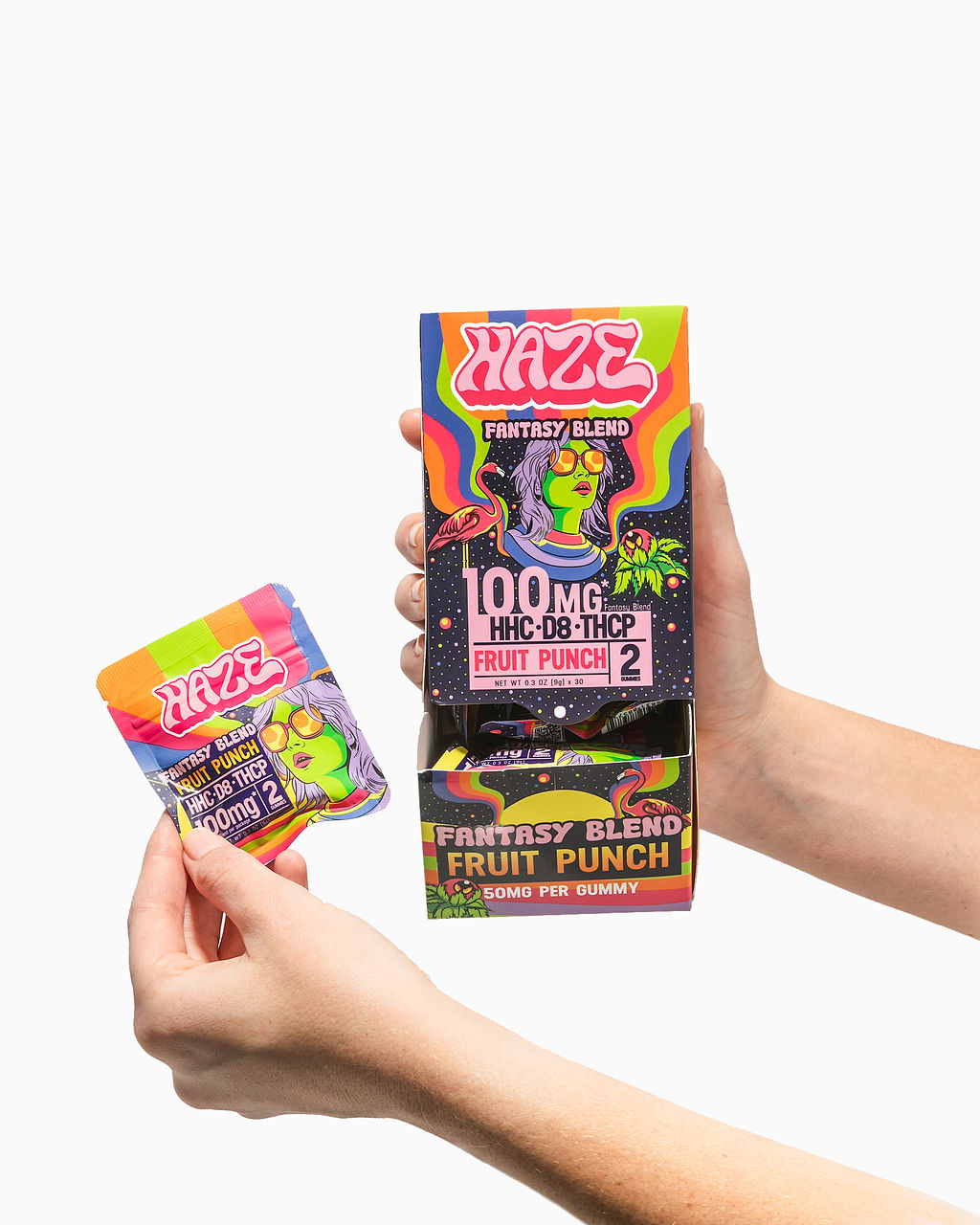CBD (cannabidiol) has rapidly gained attention as a potential natural remedy for various ailments, including sleep disorders. With its ability to promote relaxation and reduce stress, CBD is increasingly being used to support a good night’s rest. However, like any supplement, it’s important to understand how to use CBD for sleep effectively, including knowing the right dosage and considering tips for optimizing its results. This article will provide insights into the benefits of CBD for sleep, discuss safe dosage recommendations, and offer practical tips for ensuring the best possible outcomes.
Understanding CBD and Its Role in Sleep
CBD is a non-psychoactive compound derived from the hemp plant. Unlike THC (tetrahydrocannabinol), which is known for its intoxicating effects, CBD does not produce a “high.” Instead, it interacts with the body’s endocannabinoid system (ECS), a network of receptors that plays a critical role in regulating various physiological processes, including sleep, mood, and stress levels.
CBD’s potential to promote better sleep is believed to stem from its ability to interact with the ECS in a way that helps balance and regulate factors that influence sleep. CBD has been shown to reduce anxiety, alleviate pain, and enhance relaxation, all of which can contribute to more restful and consistent sleep cycles.
How CBD Affects Sleep
- Reduces Anxiety: Anxiety is one of the most common causes of sleep disturbances. CBD is believed to have anxiolytic (anxiety-reducing) properties, making it useful for individuals who struggle with racing thoughts and stress before bedtime. By helping to calm the mind, CBD may make it easier to fall asleep and stay asleep throughout the night.
- Promotes Relaxation: CBD can induce a sense of calm and relaxation, which is vital for signaling the body that it’s time to wind down. This relaxation effect may help people with insomnia or other sleep disorders.
- Alleviates Pain: Chronic pain is another significant factor that can prevent restful sleep. CBD is known for its analgesic (pain-relieving) properties, which may help reduce discomfort, allowing for better quality sleep.
- Regulates Sleep Cycle: Some studies suggest that CBD can affect the body’s circadian rhythms, the internal biological clock that regulates sleep and wakefulness. CBD may help restore balance in the sleep-wake cycle, particularly for individuals suffering from irregular sleep patterns or conditions like jet lag.
Safe Dosage of CBD for Sleep
One of the most common questions when using CBD for sleep is how much to take. The optimal dosage of CBD for sleep can vary from person to person, depending on factors such as body weight, individual tolerance, and the severity of sleep issues. Below are general guidelines for dosing CBD for sleep:
Start Low and Go Slow
If you’re new to CBD, it’s essential to start with a low dose and gradually increase it until you find what works best for you. Starting with a small amount helps you gauge how your body responds to CBD and allows you to minimize any potential side effects. A typical starting dose ranges from 10 to 20 milligrams (mg) per day.
Increase Gradually
After starting with a low dose, if you don’t experience the desired effects, increase the dosage by 5 to 10 mg every few days. Some people may find that a dose of 30 to 50 mg per day is effective for promoting sleep, while others may need higher amounts.
Consider Your Body Weight
Body weight can influence how much CBD you need to feel its effects. A general guideline is to take about 1-6 mg of CBD for every 10 pounds of body weight. For example, a person weighing 150 pounds might start with a dose of 15-30 mg, while someone weighing 200 pounds may need 20-40 mg.
Formulation Matters
CBD comes in various forms, including oils, capsules, gummies, and tinctures. The bioavailability (absorption rate) of CBD differs depending on the form. For instance, tinctures taken under the tongue tend to be absorbed more quickly than capsules or edibles. If you’re using CBD gummies or capsules, the onset of effects may take longer, but the effects may last longer as well.
Monitor Your Response
It’s essential to monitor how your body responds to CBD, particularly when adjusting your dosage. Keep track of factors such as how long it takes for you to fall asleep, the quality of your sleep, and how you feel the next morning. If you find that you’re not experiencing any side effects, but also not getting the sleep benefits you’re seeking, consider adjusting the dosage.
Consult a Healthcare Professional
If you have pre-existing health conditions or take other medications, it’s always best to consult a healthcare provider before starting CBD. While CBD is generally considered safe, it may interact with certain medications or cause side effects in some individuals.
Tips for Optimal Results When Using CBD for Sleep
To make the most of CBD’s sleep-promoting benefits, consider these tips for optimizing its effectiveness:
Create a Relaxing Bedtime Routine
Even though CBD can help promote relaxation, a proper sleep environment is equally important. Develop a consistent bedtime routine that promotes a calming atmosphere, such as dimming the lights, avoiding screens (phone, computer, TV), and practicing relaxation techniques like deep breathing or meditation.
Use CBD Consistently
For the best results, use CBD regularly, ideally about 30 minutes to an hour before bed. Consistency is key to supporting your body’s natural sleep cycle and helping you establish a healthier sleep pattern.
Pair CBD with Other Sleep-Supporting Practices
While CBD may improve sleep quality on its own, combining it with other healthy sleep practices can enhance its effectiveness. Regular exercise, maintaining a consistent sleep schedule, and minimizing caffeine intake, especially in the afternoon and evening, are all essential to optimizing sleep.
Consider Full-Spectrum CBD
Full-spectrum CBD products contain a variety of cannabinoids, terpenes, and other compounds found in the hemp plant. These components may work synergistically to enhance CBD’s effects. If you’re seeking comprehensive benefits, including potential improvements to sleep, full-spectrum CBD products may be a good choice.
Stay Hydrated
CBD can sometimes lead to dry mouth, which could make it harder to fall asleep if you’re thirsty. Make sure to drink enough water during the day and have a glass of water next to your bed just in case you wake up thirsty.
Use the Right Delivery Method
As mentioned earlier, different CBD products are absorbed at different rates. Tinctures and oils are often the fastest-acting forms, but CBD gummies or capsules can be a good option for those who prefer a longer-lasting effect. Choose the form that best suits your preferences and lifestyle.
Keep Stress in Check
CBD’s ability to reduce stress and anxiety is one of its primary benefits when it comes to sleep. If you’re prone to stress, consider additional relaxation techniques such as journaling, taking a warm bath, or using essential oils like lavender to create a calming environment.
Conclusion
CBD shows promising potential as a natural solution for improving sleep quality. By understanding its effects, experimenting with appropriate dosages, and following helpful sleep practices, you can optimize your chances of experiencing better, more restful sleep. However, it’s essential to start with a low dose and consult a healthcare provider if needed, especially if you have any underlying health concerns or take medications. As with any supplement, patience and consistency are crucial to achieving the best results with CBD for sleep.
I recently tried the CBD for Sleep products from Just CBD, and I’ve got to say, my experience has been a mix of pleasant surprises and a few minor hiccups. Let me break it down for you and give you the lowdown on each of the options I tried!
Nighttime CBD Oil Tincture with Melatonin
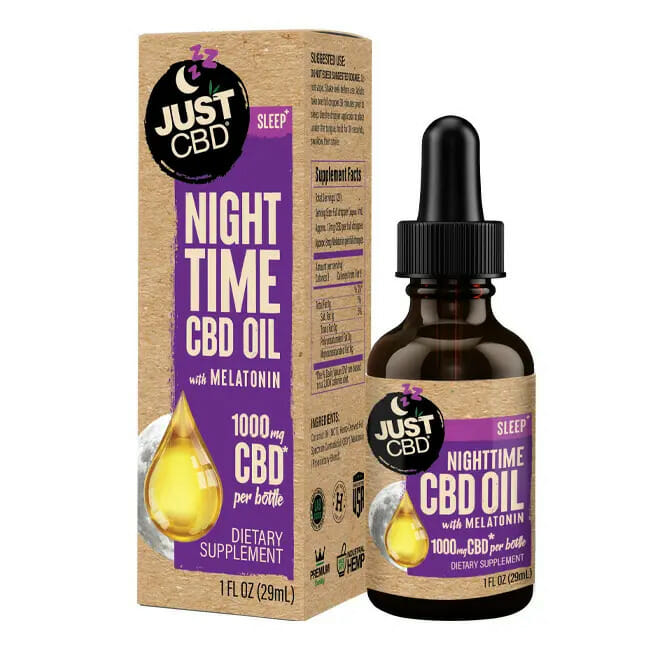
Nighttime CBD Oil Tincture with Melatonin
First up, the Nighttime CBD Oil Tincture with Melatonin. I usually take CBD before bed, so this product sounded right up my alley. The tincture itself is super easy to use – just a few drops under the tongue and you’re good to go. I love that it’s got melatonin in it because it’s like a double whammy for getting restful sleep. The taste is a bit earthy, but I didn’t mind it too much. Within about 30 minutes, I started feeling relaxed and just drifted off peacefully. What I liked: Fast-acting, very calming, and perfect for a cozy, restful night. What I didn’t like: It could be a bit too potent if you’re sensitive to melatonin, so I would suggest starting with a small dose to see how your body reacts.
CBD Gummies for Sleep
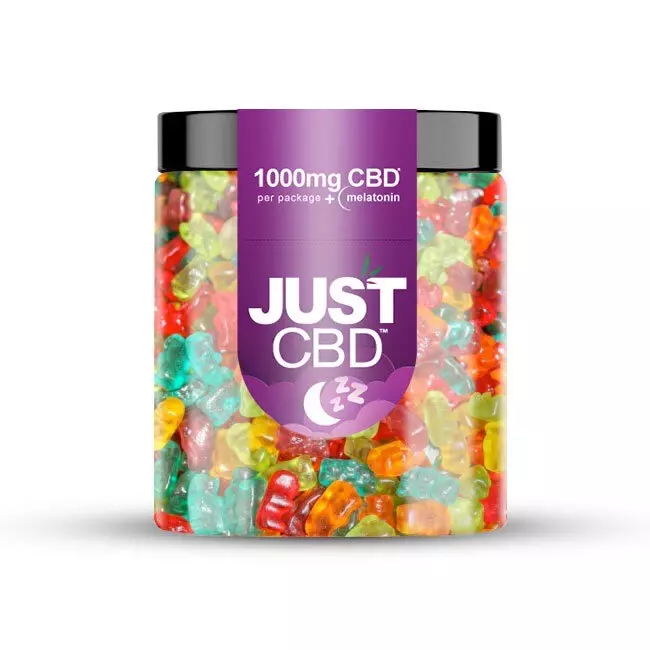
Next, I tried the CBD Gummies for Sleep. These gummies are great for anyone who wants a more straightforward, tasty option. The gummies are infused with a mix of CBD and melatonin, which definitely helps with winding down. The taste is great, not too sweet, and they’re easy to chew, which is a plus. I felt a gentle relaxation coming over me within an hour. What I liked: The convenience factor – pop one or two gummies, and I’m good to go. Plus, they taste awesome! What I didn’t like: The effect took a little longer than the tincture, and I didn’t feel as deeply rested the next morning as I did with the oil.
CBD Gummies for Sleep (Extra Strength)
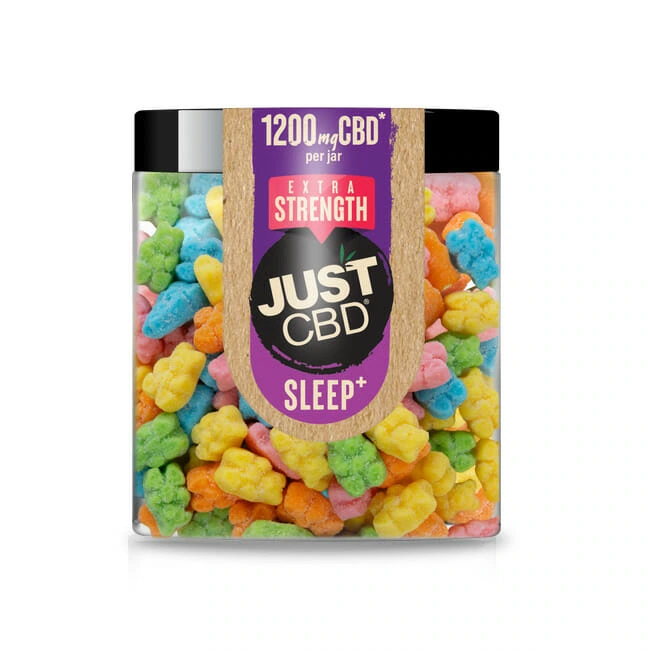
CBD Gummies for Sleep Extra Strength
Then there’s the Extra Strength CBD Gummies for Sleep. If the regular gummies weren’t doing the trick for you, these bad boys pack a punch! I’ve gotta admit, I was a bit nervous that they might make me feel groggy, but I was pleasantly surprised. The extra strength did help me sleep more soundly. I woke up feeling pretty refreshed, not sluggish at all, which I loved. What I liked: Stronger effects, and I slept through the night. What I didn’t like: They’re a bit too potent if you only need a light dose, so I’d recommend starting slow to avoid overdoing it.
Full Spectrum CBD Capsules with Melatonin
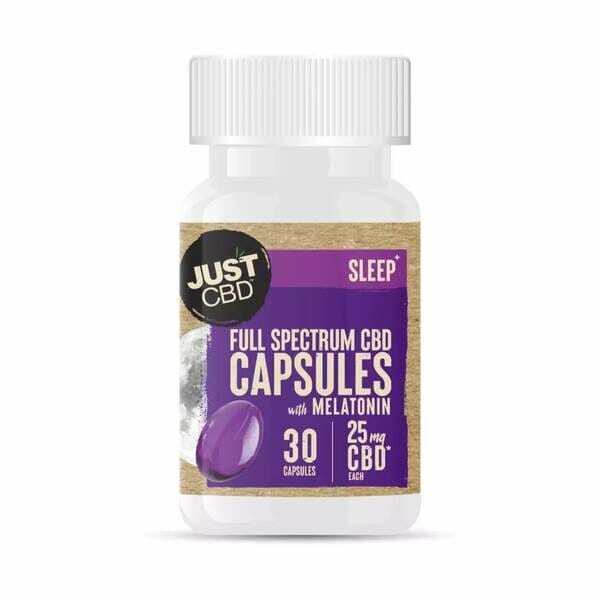
Full Spectrum CBD Capsules with Melatonin
Last but not least, I gave the Full Spectrum CBD Capsules with Melatonin a try. I’m more of a fan of oils and gummies, but these capsules were surprisingly effective. They’re perfect if you don’t like the taste of oils or gummies but still want the same restful sleep benefits. The capsules are easy to swallow, and after about an hour, I felt a nice calmness wash over me. What I liked: Discreet and simple to use, and they provided a smooth, steady relaxation. What I didn’t like: It took a little longer to kick in compared to the tincture and gummies.
Final Thoughts
Overall, all of these products did a great job of helping me relax and sleep better. If you’re looking for something quick and effective, I’d say go for the Nighttime CBD Oil Tincture with Melatonin. If you prefer gummies, both the regular and extra strength versions are awesome, depending on how much you need. The Full Spectrum CBD Capsules are a great option for those who like a low-key, no-fuss approach.
What is the best CBD dosage for improving sleep?
The ideal dosage of CBD for sleep varies from person to person. It’s recommended to start with a low dose, such as 10-20 mg, and gradually increase it as needed. Pay attention to how your body responds to find the optimal dose for you.
Can CBD help with sleep disorders like insomnia?
Yes, CBD has shown potential in helping with sleep disorders such as insomnia by promoting relaxation and reducing anxiety. It interacts with the body’s endocannabinoid system to support a more restful sleep cycle.
How long does it take for CBD to work for sleep?
CBD can take anywhere from 30 minutes to 2 hours to take effect, depending on the method of consumption. Sublingual tinctures tend to work faster than capsules or edibles because they enter the bloodstream more quickly.
Is it safe to use CBD for sleep every night?
Generally, CBD is considered safe for long-term use. However, it’s always a good idea to consult with a healthcare professional, especially if you have any underlying health conditions or are on other medications.
Can CBD help with both falling asleep and staying asleep?
Yes, CBD can help both with falling asleep by reducing anxiety and promoting relaxation, and staying asleep by regulating sleep cycles. Its effects can vary depending on the dosage and method of use.
Are there any side effects of using CBD for sleep?
While CBD is generally well-tolerated, some people may experience side effects such as drowsiness, dry mouth, or changes in appetite. These effects are typically mild and subside as your body adjusts to CBD.
Should I take CBD before or after dinner for sleep?
It’s best to take CBD 30 minutes to an hour before bedtime, regardless of whether you take it with or without food. Taking it on an empty stomach may lead to quicker absorption, while a meal may slow the process.
Can CBD be used in combination with other sleep aids?
Yes, CBD can be used in combination with other sleep aids, but it’s important to consult with a healthcare professional first to avoid any potential interactions or excessive sedation.
Can CBD interact with prescription sleep medications?
CBD may interact with certain prescription medications, including sleep aids. It’s essential to consult with a doctor before combining CBD with any medications to ensure it’s safe for you.
How do I know if CBD is effective for my sleep?
The effectiveness of CBD for sleep can be monitored by tracking your sleep patterns and noting any changes in how quickly you fall asleep and the quality of your sleep. If you see improvements, then CBD may be helping you.
- Must-Have THC Beverages in Tennessee - June 3, 2025
- Popular THC Infused Drinks in Missouri - June 2, 2025
- Michigan’s Most Loved THC Beverages - June 2, 2025

